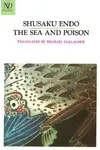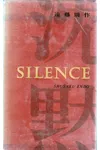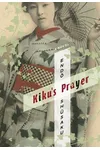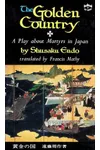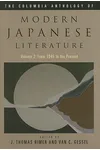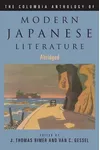Picture a Japanese storyteller who wove faith and culture into gripping tales—meet Shūsaku Endō! Born in Tokyo in 1923, Endō crafted novels that explored the clash and harmony of Christianity and Japanese tradition, earning global acclaim. His masterpiece, Silence, still captivates readers with its haunting questions about belief and sacrifice.
Endō’s life was as layered as his stories. A Catholic in a predominantly non-Christian nation, he grappled with identity and spirituality, themes that pulse through his work. His unique voice made him a standout in Japan’s post-war literary scene, and his legacy continues to inspire.
The Making of Shūsaku Endō
Shūsaku Endō’s early years were marked by upheaval. Born in Tokyo, he moved to Manchuria as a child, only to return to Japan after his parents’ divorce. Baptized as a Catholic at age 11, Endō wrestled with his faith in a culture where Christianity was rare. This tension shaped his worldview and writing. After studying French literature at Keio University, he became one of the first Japanese students to study abroad in France post-World War II, immersing himself in Western thought.
Endō’s time in France sparked his literary career. Inspired by authors like Graham Greene, he began writing novels that blended existential questions with Japanese sensibilities. His early works, like White Man, Yellow Man, laid the groundwork for his signature style—introspective, poignant, and deeply human.
Shūsaku Endō’s Unforgettable Stories
Endō’s novels are a masterclass in exploring faith, doubt, and cultural identity. His most famous work, Silence (1966), follows a Portuguese missionary in 17th-century Japan facing persecution. The novel’s raw portrayal of spiritual struggle inspired Martin Scorsese’s 2016 film adaptation. Critics praise its unflinching look at the cost of belief.
Other gems include Wonderful Fool (1959), a quirky tale of a clumsy Frenchman whose kindness upends lives, showcasing Endō’s lighter side. The Samurai (1980) traces a Japanese warrior’s journey to Europe, probing loyalty and faith. Endō’s style—lyrical yet accessible—draws readers into complex moral dilemmas, often set against historical backdrops.
His work resonates because it’s universal. Whether tackling betrayal in Scandal (1986) or redemption in Deep River (1993), Endō’s stories ask: What does it mean to be human? His ability to bridge Eastern and Western perspectives made him a literary trailblazer.
Why Shūsaku Endō Matters
Shūsaku Endō’s impact transcends borders. As a key figure in Japan’s ‘Third Generation’ of post-war writers, he gave voice to a nation rebuilding its identity. His exploration of Christianity in a Japanese context challenged stereotypes and enriched global literature. Awards like the Order of Culture (1995) and nominations for the Nobel Prize reflect his stature.
Today, Endō’s work inspires readers, filmmakers, and writers to wrestle with big questions. His stories remind us that faith, doubt, and humanity are universal, no matter the culture. Scholars and fans alike continue to unpack his nuanced narratives, ensuring his voice endures.
- About Shūsaku Endō
- Born: March 27, 1923, Tokyo, Japan
- Key Works: Silence, Wonderful Fool, The Samurai, Deep River
- Awards: Order of Culture (1995), Tanizaki Prize (1966)
- Died: September 29, 1996
Ready to dive into Shūsaku Endō’s world? Grab Silence and explore his soul-stirring blend of faith and culture!
